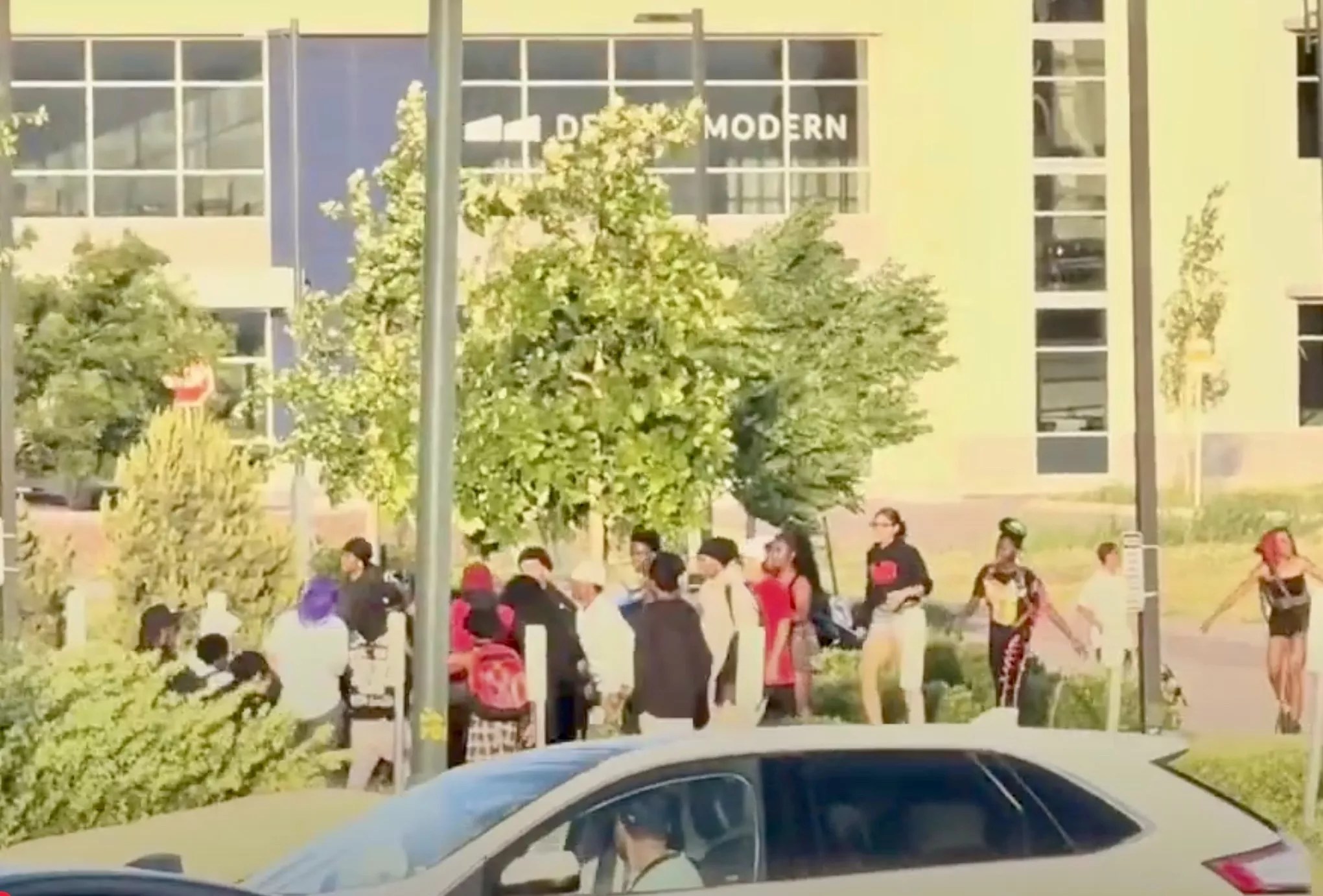
Tyre McKay

Audio By Carbonatix
On Sunday, June 22, a mob of around 300 teenagers invaded The Shops at Northfield, a mall in northeastern Denver, and caused multiple disturbances, fighting one another inside and outside of its shops. The young people had organized the melee online via videos on TikTok, and more “takeovers” were advertised for coming weeks.
Last Saturday, when a takeover was advertised at City Park, the Denver Zoo preemptively closed at 1 p.m. (though the zoo itself wasn’t mentioned on the digital flyer). A large police presence at City Park, along with youth advocates looking for wayward teens, seems to have prevented a significant crowd from gathering.
Still, the teenage fight-club flash mob now has more flyers online advertising upcoming takeovers, specifically at Elitch Gardens on July 10, Lakeside Amusement Park on July 11, and Town Center at Aurora on July 12.

screen shot
The Denver Police Department says it is “aware of upcoming ‘takeover’ events in the Denver area and will plan accordingly to try to minimize the impact of these events,” but declines to comment on specific tactics or enforcement measures. (DPD is asking anyone with information about these upcoming events to call its non-emergency line.)
Lakeside Amusement Park manager Brenda Fishman says the facility is aware of the July 11 takeover being advertised; she, too, is quiet about specifics but doesn’t plan to close the park. “I think you can never make sure of anything,” she tells Westword. “Whenever you’re dealing with the public and with large numbers of people, there are always a large number of variables and unknowns.”
The Lakeside Police Department (which has faced its own internal challenges recently) and Elitch Gardens did not respond to inquiries.
While the police plan future enforcement actions, youth advocates and community activists are struggling to identify and address the underlying causes of these pop-up fight clubs. “I’ve never seen these kids more angry, more disconnected,” says Jason McBride, who works with inner-city youth as a violence prevention specialist. Over just the last month, he says, he lost six kids he’d worked with to gun violence and suicide.
“In 2025, we have not gotten on their level,” McBride says. “We have not made them or kept them the emotionally important part of our society. Especially in the Black and brown culture, we don’t own businesses, we don’t own big swaths of land, all we have is our young people going forward to make situations in our communities better. And we’re losing a whole generation right now.”
As for possible solutions, “I’m lost right now,” he adds. “I am lost on what to do with these young people. We have to sit down with these young people and find out why they’re so angry.”
Jeff Fard convened a group of adults and close to three dozen teenagers to discuss the situation at Brother Jeff’s Cultural Center on Wednesday, June 25.
Alton Dillard, a basketball coach at Dr. Martin Luther King, Jr. Early College and a longtime communications specialist, attended the meeting at Brother Jeff’s as a concerned community member. He tells Westword there was a 24-year-old ex-con and ex-gang member there, and even that young man had a communication gap with the teens.
“Kids today are on some different shit,” Dillard says. “Even he had seen nothing like it.”
Dillard’s recollection of the meeting doesn’t exactly assuage the concerns of the larger community. “When asked, what tangibly are you all missing out here, no one could really give us anything concrete,” he reports. “We really couldn’t get a good answer out of that.”

screen shot
McBride and Dillard both point to a lack of spaces and activities in Denver for teenagers this summer, as well as schools failing to address the learning deficit for Black and brown kids. “I think this is less gang-related than just angry kids,” McBride tells Westword. “This is not about gangs, this is about angry kids that are having issues in school with other kids, and what we’re seeing now is these kids are turning to violence to handle their problems.”
While the community looks for solutions, McBride has this advice: “Listening a lot more,” he says. “We have to talk to them and see what they want, and if we do that, we can start to make some inroads.”
Dillard encourages parents to do more to monitor their kids. “I’m seeing a bit of what I call peer parenting, where people want to be their kids’ friend,” he says. “I have doubts that these kids are paying for their own phone plans. Parents need to keep a better eye on these kids’ phones to see what they may be up to.”
Dillard is also concerned about what may manifest if police and wilding teens end up in a confrontation – especially in Aurora, where the police department is under a consent decree to reform its policing after Attorney General Phil Weiser established that the department had a pattern and a practice of racially motivated policing.
“It just sounds like it could be a powder keg,” he says. “Or it may be hopefully dying down. But I would not be out in Aurora cutting up, given their history with law enforcement in the community.”